- Home
- L. M. Montgomery
Anne of the Island Page 14
Anne of the Island Read online
Page 14
Chapter XIV
The Summons
Anne was sitting with Ruby Gillis in the Gillis' garden after the dayhad crept lingeringly through it and was gone. It had been a warm, smokysummer afternoon. The world was in a splendor of out-flowering. The idlevalleys were full of hazes. The woodways were pranked with shadows andthe fields with the purple of the asters.
Anne had given up a moonlight drive to the White Sands beach that shemight spend the evening with Ruby. She had so spent many eveningsthat summer, although she often wondered what good it did any one, andsometimes went home deciding that she could not go again.
Ruby grew paler as the summer waned; the White Sands school was givenup--"her father thought it better that she shouldn't teach till NewYear's"--and the fancy work she loved oftener and oftener fell fromhands grown too weary for it. But she was always gay, always hopeful,always chattering and whispering of her beaux, and their rivalries anddespairs. It was this that made Anne's visits hard for her. What hadonce been silly or amusing was gruesome, now; it was death peeringthrough a wilful mask of life. Yet Ruby seemed to cling to her, andnever let her go until she had promised to come again soon. Mrs. Lyndegrumbled about Anne's frequent visits, and declared she would catchconsumption; even Marilla was dubious.
"Every time you go to see Ruby you come home looking tired out," shesaid.
"It's so very sad and dreadful," said Anne in a low tone. "Ruby doesn'tseem to realize her condition in the least. And yet I somehow feel sheneeds help--craves it--and I want to give it to her and can't. All thetime I'm with her I feel as if I were watching her struggle with aninvisible foe--trying to push it back with such feeble resistance as shehas. That is why I come home tired."
But tonight Anne did not feel this so keenly. Ruby was strangely quiet.She said not a word about parties and drives and dresses and "fellows."She lay in the hammock, with her untouched work beside her, and awhite shawl wrapped about her thin shoulders. Her long yellow braids ofhair--how Anne had envied those beautiful braids in old schooldays!--layon either side of her. She had taken the pins out--they made her headache, she said. The hectic flush was gone for the time, leaving her paleand childlike.
The moon rose in the silvery sky, empearling the clouds around her.Below, the pond shimmered in its hazy radiance. Just beyond theGillis homestead was the church, with the old graveyard beside it. Themoonlight shone on the white stones, bringing them out in clear-cutrelief against the dark trees behind.
"How strange the graveyard looks by moonlight!" said Ruby suddenly."How ghostly!" she shuddered. "Anne, it won't be long now before I'llbe lying over there. You and Diana and all the rest will be going about,full of life--and I'll be there--in the old graveyard--dead!"
The surprise of it bewildered Anne. For a few moments she could notspeak.
"You know it's so, don't you?" said Ruby insistently.
"Yes, I know," answered Anne in a low tone. "Dear Ruby, I know."
"Everybody knows it," said Ruby bitterly. "I know it--I've known it allsummer, though I wouldn't give in. And, oh, Anne"--she reached out andcaught Anne's hand pleadingly, impulsively--"I don't want to die. I'mAFRAID to die."
"Why should you be afraid, Ruby?" asked Anne quietly.
"Because--because--oh, I'm not afraid but that I'll go to heaven,Anne. I'm a church member. But--it'll be all so different. I think--andthink--and I get so frightened--and--and--homesick. Heaven must be verybeautiful, of course, the Bible says so--but, Anne, IT WON'T BE WHATI'VE BEEN USED TO."
Through Anne's mind drifted an intrusive recollection of a funny storyshe had heard Philippa Gordon tell--the story of some old man who hadsaid very much the same thing about the world to come. It had soundedfunny then--she remembered how she and Priscilla had laughed over it.But it did not seem in the least humorous now, coming from Ruby's pale,trembling lips. It was sad, tragic--and true! Heaven could not be whatRuby had been used to. There had been nothing in her gay, frivolouslife, her shallow ideals and aspirations, to fit her for that greatchange, or make the life to come seem to her anything but alien andunreal and undesirable. Anne wondered helplessly what she could saythat would help her. Could she say anything? "I think, Ruby," she beganhesitatingly--for it was difficult for Anne to speak to any one of thedeepest thoughts of her heart, or the new ideas that had vaguely begunto shape themselves in her mind, concerning the great mysteries of lifehere and hereafter, superseding her old childish conceptions, and itwas hardest of all to speak of them to such as Ruby Gillis--"I think,perhaps, we have very mistaken ideas about heaven--what it is and whatit holds for us. I don't think it can be so very different from lifehere as most people seem to think. I believe we'll just go on living, agood deal as we live here--and be OURSELVES just the same--only it willbe easier to be good and to--follow the highest. All the hindrancesand perplexities will be taken away, and we shall see clearly. Don't beafraid, Ruby."
"I can't help it," said Ruby pitifully. "Even if what you say aboutheaven is true--and you can't be sure--it may be only that imaginationof yours--it won't be JUST the same. It CAN'T be. I want to go on livingHERE. I'm so young, Anne. I haven't had my life. I've fought so hard tolive--and it isn't any use--I have to die--and leave EVERYTHING I carefor." Anne sat in a pain that was almost intolerable. She could not tellcomforting falsehoods; and all that Ruby said was so horribly true. SheWAS leaving everything she cared for. She had laid up her treasureson earth only; she had lived solely for the little things of life--thethings that pass--forgetting the great things that go onward intoeternity, bridging the gulf between the two lives and making of death amere passing from one dwelling to the other--from twilight to uncloudedday. God would take care of her there--Anne believed--she wouldlearn--but now it was no wonder her soul clung, in blind helplessness,to the only things she knew and loved.
Ruby raised herself on her arm and lifted up her bright, beautiful blueeyes to the moonlit skies.
"I want to live," she said, in a trembling voice. "I want to livelike other girls. I--I want to be married, Anne--and--and--have littlechildren. You know I always loved babies, Anne. I couldn't say this toany one but you. I know you understand. And then poor Herb--he--heloves me and I love him, Anne. The others meant nothing to me, but HEdoes--and if I could live I would be his wife and be so happy. Oh, Anne,it's hard."
Ruby sank back on her pillows and sobbed convulsively. Anne pressed herhand in an agony of sympathy--silent sympathy, which perhaps helped Rubymore than broken, imperfect words could have done; for presently shegrew calmer and her sobs ceased.
"I'm glad I've told you this, Anne," she whispered. "It has helped mejust to say it all out. I've wanted to all summer--every time you came.I wanted to talk it over with you--but I COULDN'T. It seemed as if itwould make death so SURE if I SAID I was going to die, or if any oneelse said it or hinted it. I wouldn't say it, or even think it. In thedaytime, when people were around me and everything was cheerful, itwasn't so hard to keep from thinking of it. But in the night, when Icouldn't sleep--it was so dreadful, Anne. I couldn't get away fromit then. Death just came and stared me in the face, until I got sofrightened I could have screamed.
"But you won't be frightened any more, Ruby, will you? You'll be brave,and believe that all is going to be well with you."
"I'll try. I'll think over what you have said, and try to believe it.And you'll come up as often as you can, won't you, Anne?"
"Yes, dear."
"It--it won't be very long now, Anne. I feel sure of that. And I'drather have you than any one else. I always liked you best of all thegirls I went to school with. You were never jealous, or mean, like someof them were. Poor Em White was up to see me yesterday. You remember Emand I were such chums for three years when we went to school? And thenwe quarrelled the time of the school concert. We've never spoken to eachother since. Wasn't it silly? Anything like that seems silly NOW. ButEm and I made up the old quarrel yesterday. She said she'd have spokenyears ago, only she thought I wouldn't. And I never spoke to herbecause I was sure
she wouldn't speak to me. Isn't it strange how peoplemisunderstand each other, Anne?"
"Most of the trouble in life comes from misunderstanding, I think," saidAnne. "I must go now, Ruby. It's getting late--and you shouldn't be outin the damp."
"You'll come up soon again."
"Yes, very soon. And if there's anything I can do to help you I'll be soglad."
"I know. You HAVE helped me already. Nothing seems quite so dreadfulnow. Good night, Anne."
"Good night, dear."
Anne walked home very slowly in the moonlight. The evening had changedsomething for her. Life held a different meaning, a deeper purpose.On the surface it would go on just the same; but the deeps had beenstirred. It must not be with her as with poor butterfly Ruby. When shecame to the end of one life it must not be to face the next with theshrinking terror of something wholly different--something for whichaccustomed thought and ideal and aspiration had unfitted her. The littlethings of life, sweet and excellent in their place, must not be thethings lived for; the highest must be sought and followed; the life ofheaven must be begun here on earth.
That good night in the garden was for all time. Anne never saw Ruby inlife again. The next night the A.V.I.S. gave a farewell party to JaneAndrews before her departure for the West. And, while light feet dancedand bright eyes laughed and merry tongues chattered, there came asummons to a soul in Avonlea that might not be disregarded or evaded.The next morning the word went from house to house that Ruby Gillis wasdead. She had died in her sleep, painlessly and calmly, and on her facewas a smile--as if, after all, death had come as a kindly friend to leadher over the threshold, instead of the grisly phantom she had dreaded.
Mrs. Rachel Lynde said emphatically after the funeral that Ruby Gilliswas the handsomest corpse she ever laid eyes on. Her loveliness, as shelay, white-clad, among the delicate flowers that Anne had placed abouther, was remembered and talked of for years in Avonlea. Ruby had alwaysbeen beautiful; but her beauty had been of the earth, earthy; it hadhad a certain insolent quality in it, as if it flaunted itself in thebeholder's eye; spirit had never shone through it, intellect had neverrefined it. But death had touched it and consecrated it, bringing outdelicate modelings and purity of outline never seen before--doing whatlife and love and great sorrow and deep womanhood joys might havedone for Ruby. Anne, looking down through a mist of tears, at her oldplayfellow, thought she saw the face God had meant Ruby to have, andremembered it so always.
Mrs. Gillis called Anne aside into a vacant room before the funeralprocession left the house, and gave her a small packet.
"I want you to have this," she sobbed. "Ruby would have liked you tohave it. It's the embroidered centerpiece she was working at. It isn'tquite finished--the needle is sticking in it just where her poor littlefingers put it the last time she laid it down, the afternoon before shedied."
"There's always a piece of unfinished work left," said Mrs. Lynde, withtears in her eyes. "But I suppose there's always some one to finish it."
"How difficult it is to realize that one we have always known can reallybe dead," said Anne, as she and Diana walked home. "Ruby is the first ofour schoolmates to go. One by one, sooner or later, all the rest of usmust follow."
"Yes, I suppose so," said Diana uncomfortably. She did not want to talkof that. She would have preferred to have discussed the details of thefuneral--the splendid white velvet casket Mr. Gillis had insisted onhaving for Ruby--"the Gillises must always make a splurge, even atfunerals," quoth Mrs. Rachel Lynde--Herb Spencer's sad face, theuncontrolled, hysteric grief of one of Ruby's sisters--but Anne wouldnot talk of these things. She seemed wrapped in a reverie in which Dianafelt lonesomely that she had neither lot nor part.
"Ruby Gillis was a great girl to laugh," said Davy suddenly. "Will shelaugh as much in heaven as she did in Avonlea, Anne? I want to know."
"Yes, I think she will," said Anne.
"Oh, Anne," protested Diana, with a rather shocked smile.
"Well, why not, Diana?" asked Anne seriously. "Do you think we'll neverlaugh in heaven?"
"Oh--I--I don't know" floundered Diana. "It doesn't seem just right,somehow. You know it's rather dreadful to laugh in church."
"But heaven won't be like church--all the time," said Anne.
"I hope it ain't," said Davy emphatically. "If it is I don't want togo. Church is awful dull. Anyway, I don't mean to go for ever so long. Imean to live to be a hundred years old, like Mr. Thomas Blewett of WhiteSands. He says he's lived so long 'cause he always smoked tobacco and itkilled all the germs. Can I smoke tobacco pretty soon, Anne?"
"No, Davy, I hope you'll never use tobacco," said Anne absently.
"What'll you feel like if the germs kill me then?" demanded Davy.

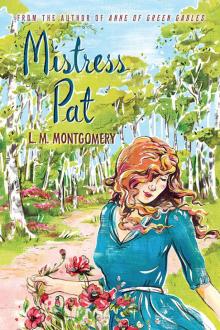 Mistress Pat
Mistress Pat A Tangled Web
A Tangled Web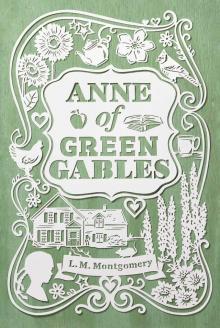 Anne of Green Gables
Anne of Green Gables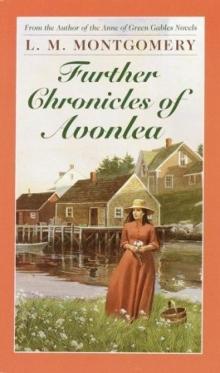 Further Chronicles of Avonlea
Further Chronicles of Avonlea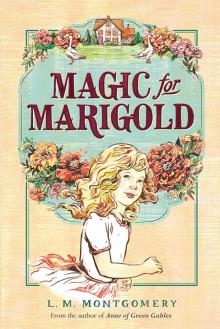 Magic for Marigold
Magic for Marigold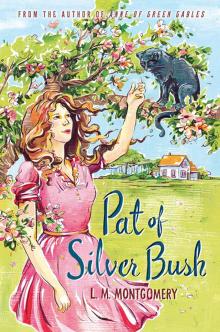 Pat of Silver Bush
Pat of Silver Bush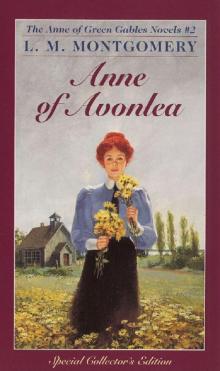 Anne of Avonlea
Anne of Avonlea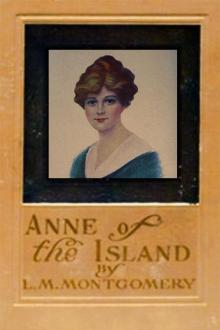 Anne of the Island
Anne of the Island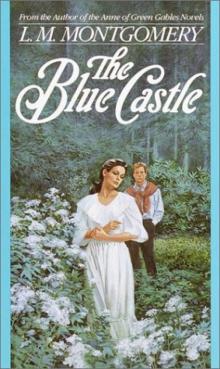 The Blue Castle
The Blue Castle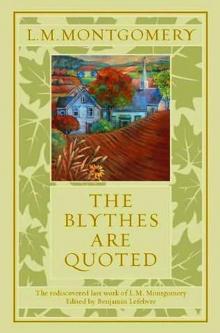 The Blythes Are Quoted
The Blythes Are Quoted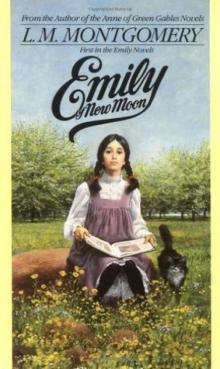 Emily of New Moon
Emily of New Moon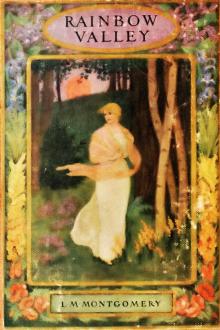 Rainbow Valley
Rainbow Valley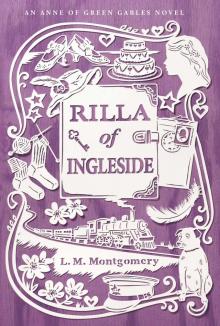 Rilla of Ingleside
Rilla of Ingleside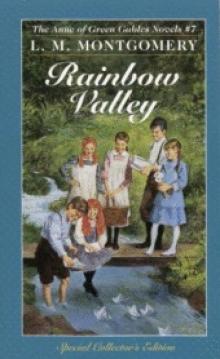 07 - Rainbow Valley
07 - Rainbow Valley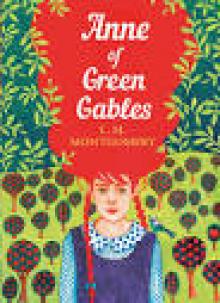 Anne of Green Gables (Penguin)
Anne of Green Gables (Penguin)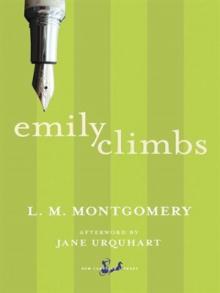 Emily Climbs
Emily Climbs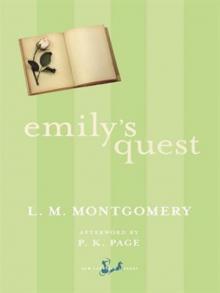 Emily's Quest
Emily's Quest A Name for Herself
A Name for Herself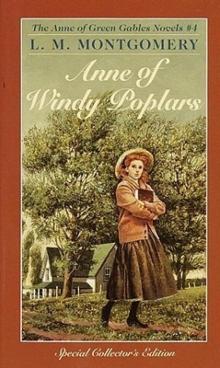 Anne of Windy Poplars
Anne of Windy Poplars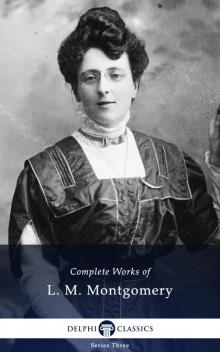 The Complete Works of L M Montgomery
The Complete Works of L M Montgomery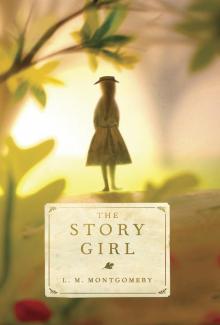 The Story Girl
The Story Girl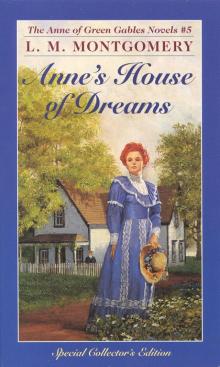 Anne's House of Dreams
Anne's House of Dreams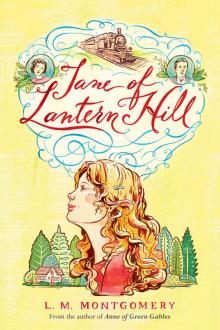 Jane of Lantern Hill
Jane of Lantern Hill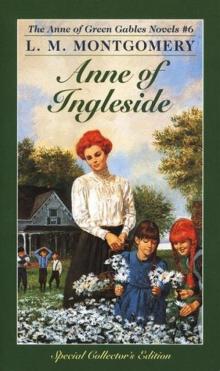 Anne of Ingleside
Anne of Ingleside